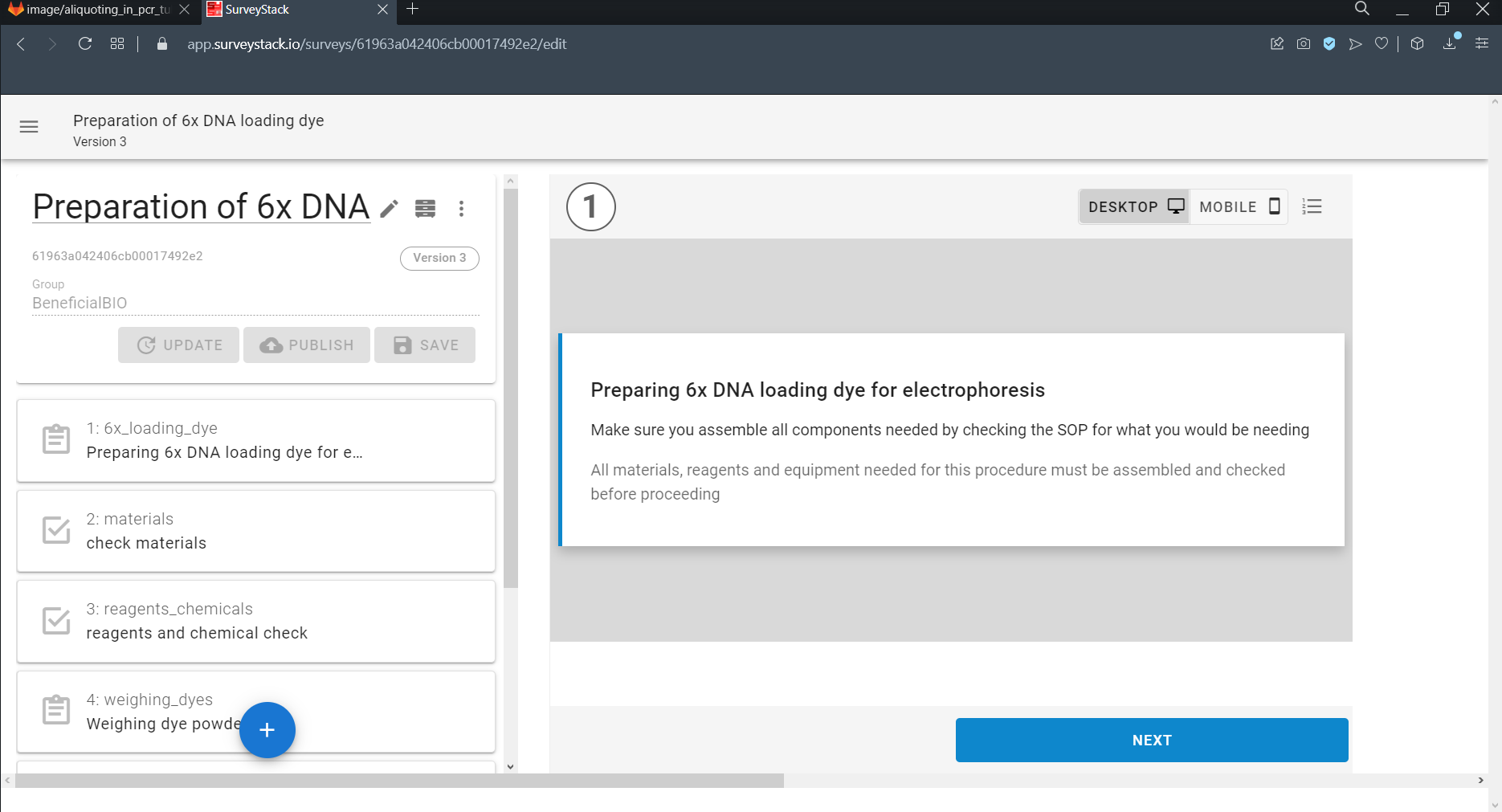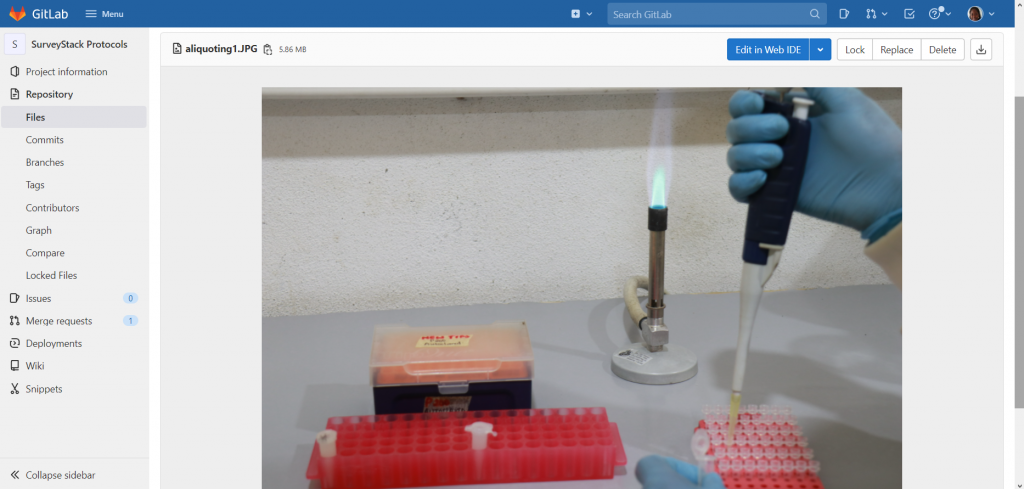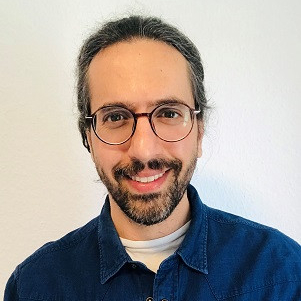”With Beneficial Bio our mission is to provide locally manufactured reagents to make sure that our local researchers get what they need faster and cheaper. That involves distributing manufacturing, because that is the only way that we can overcome the shipping and importation and customs barriers that really add to the time and the cost of those reagents. That is really where we are using SurveyStack in our mission to provide reagents quicker and cheaper, but also high quality,” says Dr. Jenny Molloy of Beneficial Bio.
Dr. Jenny Molloy is a Senior Research Associate at the University of Cambridge where her research group builds open source tools for reagent manufacturing and she studies the role and impact of open approaches to Intellectual Property for a Sustainable and Equitable Bioeconomy. Her work focuses on better understanding problems facing researchers accessing biological research tools in low-resource contexts.
Jenny Molloy is also the founder of Beneficial Bio Ltd, a non-profit company setting up distribution and manufacturing channels for biological reagents in Africa and Latin America. With her team, she develops innovative technologies for local, distributed manufacturing of enzymes to improve access and build capacity for biological research.
Furthermore, Jenny Molloy is a founding member of GOSH Gathering for Open Science Hardware, a global community for those developing, using and studying open source approaches to scientific instrumentation.
*cover image: collaged, filtered, tailored images CC BY 4.0 Beneficial Bio
Sebastian Klemm: What is the mission of Beneficial Bio, and how do you achieve it?
Jenny Molloy: Our mission at Beneficial Bio is to ensure that biologists, specifically molecular biologists, have the research tools that they need to do their best science in a way that encourages that science to benefit people through health or agriculture or other kinds of innovations.
The way we achieve this is by trying to fix what are currently very broken supply chains for molecular biology tools in lower middle income countries. We do it through a number of ways, but the primary one is manufacturing those tools in the country to avoid some of the shipping and customs challenges that researchers face when they would import them.
The second thing we do is sell other reagents and tools that we have sourced from trusted suppliers that we know we can get to people affordably and rapidly. There are other aspects of our work in terms of training and offering technical support to researchers to use cutting-edge techniques, but the manufacturing and supply are those main things that we do.

Sebastian Klemm: In our previous interview Greg Austic of Our Sci says: “Our SurveyStack application is also used in manufacturing or laboratory facilities. Beneficial Bio, a distributed manufacturer of biological reagents, uses SurveyStack surveys to manage their in-lab procedures and quality control – enabling both directions (SOPs ) and data feedback (QA/QC) in a single process.” How has SurveyStack served your mission at Beneficial Bio in your own words?
Jenny Molloy: With Beneficial Bio our mission is to provide locally manufactured reagents to make sure that our local researchers get what they need faster and cheaper. That involves distributing manufacturing, because that is the only way that we can overcome the shipping and importation and customs barriers that really add to the time and the cost of those reagents. Because we are distributed it means we need to have a system in place where we can easily share protocols and knowledge within the network, but also gather data from all of the nodes.
We currently have a pilot in Cameroon which is where we have set up SurveyStack as an in-process protocol, where people step through the protocol within SurveyStack and add the quality assurance data directly in as they are going along, rather than having to find their lab book and jot it down. We are about using SurveyStack as a sort of both work instructions and also quality assurance data gathering.
We are just about to be training a team in the Philippines and a team in Ghana, and the idea is that they will use the same SurveyStack surveys in their own locations, and we can update protocols across the network all at once. Because part of the challenge with manufacturing in a distributed way, is making sure everybody’s aligned to the same processes and procedures. That is really where we are using SurveyStack in our mission to provide reagents quicker and cheaper, but also high quality. We are viewing SurveyStack as a fundamental piece of technology for our quality assurance.

Sebastian Klemm: How did the collaboration among Beneficial Bio and Our Sci inform the SurveyStack solution from your point of view?
Jenny Molloy: We have had a lot of support from both Emily Brady and Greg Austic of Our Sci in terms of setting up the SurveyStack. Basically, what happened was, I knew about SurveyStack already and had been talking to Greg. It came up in conversation that we were looking for a solution. We looked at Dozuki, which is a sort of a commercial alternative – not actually designed for the same purpose as SurveyStack – rather designed specifically for our application, which is manufacturing work instructions combined with training and quality assurance. As a proprietary commercial software, though we really felt like it actually ticks a lot of our boxes, it is not so scalable, particularly for a smaller non-profit.
Since wherever possible we have Open Source values and Open Source ethos, Our Sci’s product SurveyStack seemed like a better solution. We could support them by paying a fee for their support and therefore build up an open system.
This can not necessarily completely replicate what Dozuki can do, because that in itself a very sophisticated system and one of the reasons it is so expensive is that it has had a lot of time and money spent on it and all the polish and everything. Yet, we felt that by collaborating with Our Sci on SurveyStack we would have a much more scalable and customizable solution.
Greg Austic does a lot of work in terms of making sure that we could display the work instructions as we went along, because that was not something that previous users had asked for. Thus the collaboration was definitely critical to informing what we have ended up with and it is still ongoing.
Sebastian Klemm: When you think back – spreadsheets, forms, complexity, non-scalable, values non-aligned: How did you conduct similar work before SurveyStack?
Jenny Molloy: We basically had Google Docs and Word documents with the SOPs (Standard Operating Procedures) and then a form that would be filled in either on the Google Doc or as a printed form in the lab. Which is fine, but it does not allow you to doing double entry on the data capture. Then also, consolidating all of that information in the background is pretty difficult unless again you just put it into another setting.
Previously, we did not have any of the advantages of SurveyStack in terms of aligning everything, and Google Docs version control is always a lot more tricky than something like SurveyStack.
Sebastian Klemm: With a blue sky perspective: What potential do you see with SurveyStack? Why is it exciting?
Jenny Molloy: At the moment we have all these nodes building out. I mentioned the Philippines and Ghana, and we have got Kenya and Ethiopia coming online later in the year. I think this is exciting, because we will be able to not only roll out improvements to protocols that are found, but the different nodes will be always suggesting quality improvements that we can then roll out to everybody by updating their work instructions.
Additionally, we can then look at the data that is coming in from the production runs and really see what is going well – what isn’t, and are there some sort of systematic errors happening only at a certain state. And then dig down into why that is. Because we have a central support team who will be helping the nodes keep everything over high quality. Thus, having that oversight will be really great.
One of the challenges for example with having something like the proprietary system I mentioned is that we were struggling to figure out how we would make that also available to other people.
Having SurveyStack open source and being able to make some surveys public and some not public is really helpful too. Because we do not have proprietary protocols. We want people to be able to follow on the work instructions themselves. We just would not need anybody who is not involved in the manufacturing network to be submitting quality assurance information. But having this is a potential tool for them to use as well and copy the surveys and apply them in their own labs, is an ideal situation for us.

Sebastian Klemm: What next challenges do you aspire to tackle with Benefical Bio? What kind of opportunities are you seeking in that respect?
Jenny Molloy: Beyond scaling out so that we are effectively replicating what we have already piloted in Cameroon in different places, the next step is to take our production from research use only to diagnostic reagent production, which is a big step up in terms of the level of quality assurance and quality management system structure that is needed.
We see SurveyStack potentially also playing a role in that as we end up basically with more and more data collection requirements to ensure that we meet the ISO 13485 as the international standard for diagnostics production.
That is where our next aspiration is to make our system ISO 13485 compliant. We have a consultant coming in the next six months to look at the systems we have in place and what we need to do to reach that point. I anticipate that SurveyStack could really help us in that regard.
In terms of the general organisation we can use the consultancy and further fundraising support to get from research use only diagnostics is the main thing that we are doing and.
We are trying to build out a support team for the nodes, because as they build out we are going to need someone who is helping with operations, helping with doing quality management across multiple nodes. We do not necessarily need a full-time quality manager in each node, but we need someone who has really got the systems overview. These are the positions that we are trying to put in place at the moment.
Explore Beneficial Bio
Explore the Survey Stack App
Reach out to Emily Brady at Our Sci to request a SurveyStack demo walkthrough
Explore our entire SurveyStack interview series






